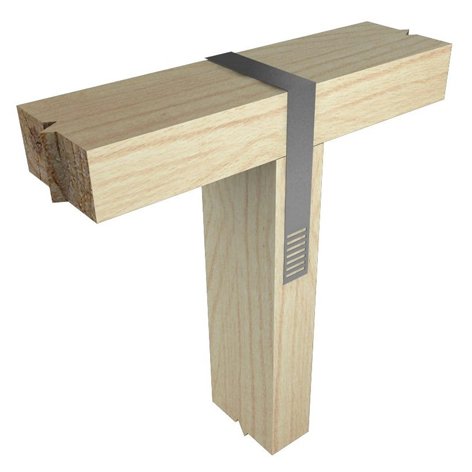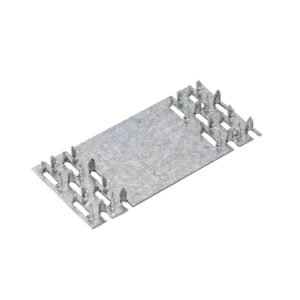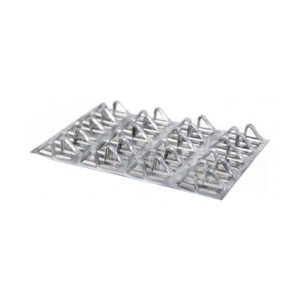Pryda Stud Ties greatly improve the jointing of top and bottom plates to studs compared to the common nail fixing, ie: – Greater tie-down strength: Stud Tie nails are driven into the side grain of the stud to resist wind uplift in lateral shear.
This is far stronger than relying on the withdrawal strength of common nails in end grain. For example, two 125 x 3.75mm nails driven through 45mm thick wall plates into the ends of dry pine studs (as required by AS 1684) have a capacity of 0.9 kN (WSD) while ST3 Stud Ties provide 3.9 kN.* (see Design Capacities next page). – No splitting of the timber: With Stud Ties, the careful location of the nails away from timber ends and edges avoids splitting which can occur in common nails only joints, especially in some timbers and particularly with skew nailing.
This is not only unsightly, but it reduces the strength of the joint substantially. – Convenience: As ST3 and ST4 Stud Ties have in-built nails, there is no need for other nails. Stud Ties are quick and easy to apply; the in-built nails are readily driven home with a conventional hammer.
Complies with AS1684 Bracing Units rules: All types of Stud Ties meet the tie-down requirements of the code.
A quick, neat and effective connector between studs and wall plates.
Usage(s):
Bracing and bracing unit construction; Tie-down connectors; Wall studs to wall plate joints.






